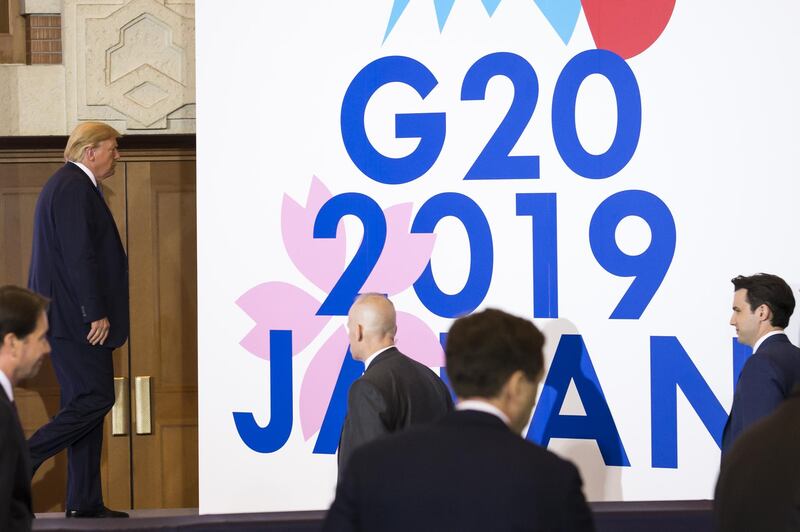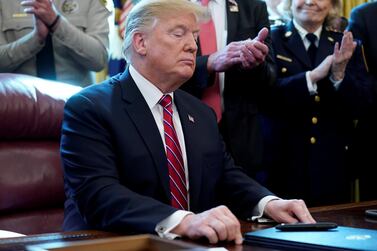The third quarter and second half of the year will begin on Monday with greater optimism now that US-China trade talks are back on track, following the bilateral meeting between Presidents Donald Trump and Xi Jinping at the G20 meeting in Osaka, Japan.
This should be a welcome relief for financial markets, which have oscillated since talks were suspended in May, with equities pausing, bond yields and the dollar falling and gold having the best month in three years as global uncertainty picked up.
However, the implications are not completely straightforward as the apparent truce may still prove short lived. Furthermore, with a more positive trade outlook potentially boosting economic sentiment and lifting markets, it might also cast doubt on the likelihood of Fed interest rate cuts later this month. The promise of a rate cut has arguably been the main factor keeping equities underpinned in June. Finally, any perceived success for Mr Trump from using trade policy to pursue his economic and political agendas is probably a bad omen for the rest of the world, and may also do longstanding damage to the US economy.
The weekend G20 meeting saw a focus on climate change, on making progress in developing new rules for the digital economy, on female empowerment and on tackling the global problem of plastic waste.
However, in the eyes of the world, it will be for the Trump-Xi bilateral meeting that it will be remembered, as it gave the green light for the restart of trade talks between the US and China that broke down in early May. Markets will no doubt be relieved by a suspension of further tariff increases on US$300 billion (Dh1.1 trillion) of Chinese imports for the time being, as well as any retaliatory action from China and some relaxation of the restrictions placed on Chinese technology firm Huawei.
It remains uncertain how long such relief will last, and whether the onset of talks in themselves makes a trade deal more likely. Fundamental differences have not gone away, and both the US and China appear to have become more entrenched in their positions the longer negotiations have gone on.
The US is demanding fundamental changes to Chinese industrial practices, in effect challenging its sovereignty to provide subsidies to state-owned enterprises and over opening up its domestic market to US goods. China, on the other hand, looks set to resist any resumption of restrictions on Huawei. It may also resist the demands of the White House to buy specific agricultural products that the Chinese government does not appear fully aware of.
Another reason to be cautious about the effects of the agreement is because of what it might imply for US monetary policy. The Fed’s hint about lowering interest rates two weeks ago was seen as dependent on whether "uncertainties" would continue to weigh on the economic outlook. With that outlook presumably lifting, as a result of the decision to resume trade talks, it may not be necessary to cut rates, especially not as soon as this month, which the markets have discounted.
Contemplation of this could cause bond yields to reverse, equities to lose ground and the dollar to recover. Such an impact illustrates the double-edged consequences of the resumption of trade talks. Of course the outcome is good news in itself and risk appetite should improve as a direct result of the decision. However, the secondary impact will be to raise questions about whether and how quickly US interest rates will start to fall. This could add further to tensions that are brewing in currency markets between the US and the euro zone, especially if the European Central Bank proceeds with its own monetary easing in the coming months.
Finally, to the extent that Mr Trump feels he is being vindicated in using tariffs as a key tool of trade policy to prosecute his economic and political aims, the more this behaviour is normalised will have consequences not just for China but also for America’s other trading partners in Europe, India, Mexico and Canada.
The short-term impact of the truce will surely be good, but the longer-term implications are still not entirely clear.
Tim Fox is chief economist and head of research at Emirates NBD







